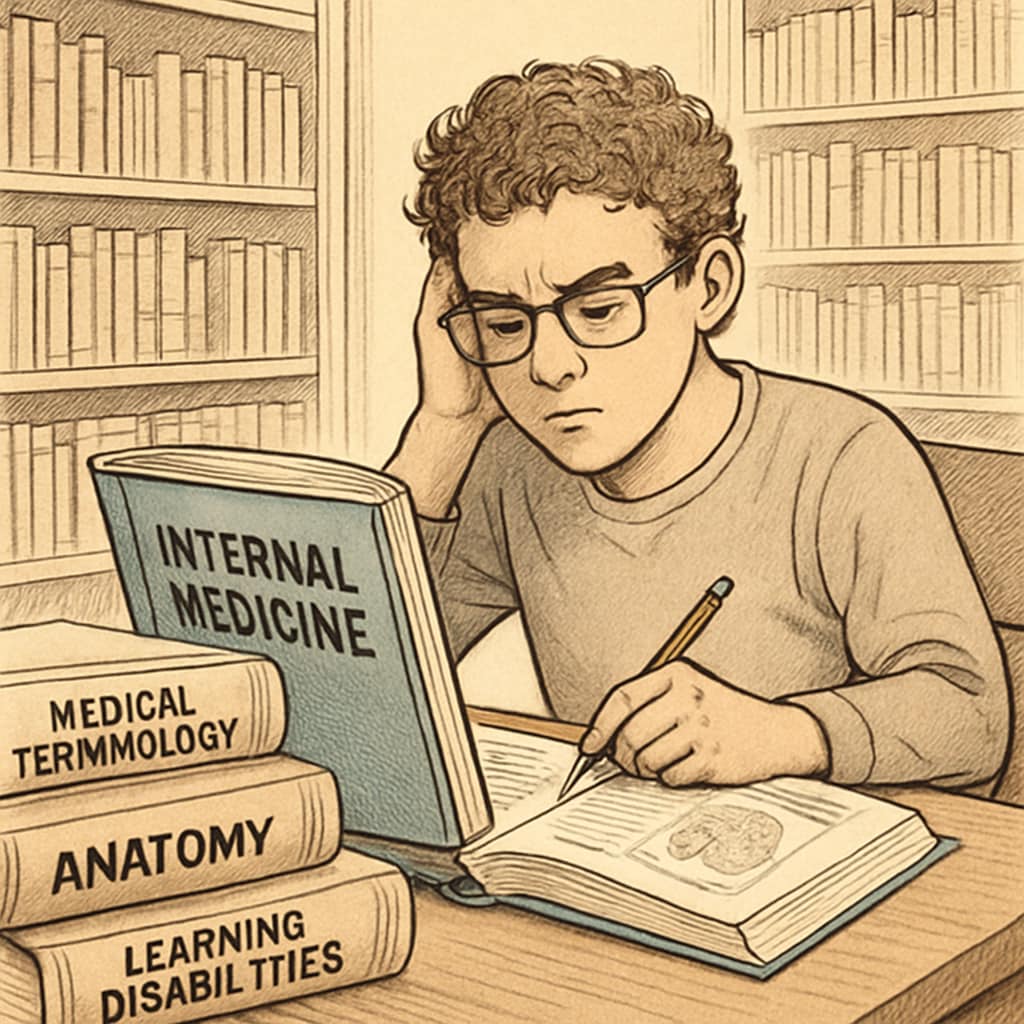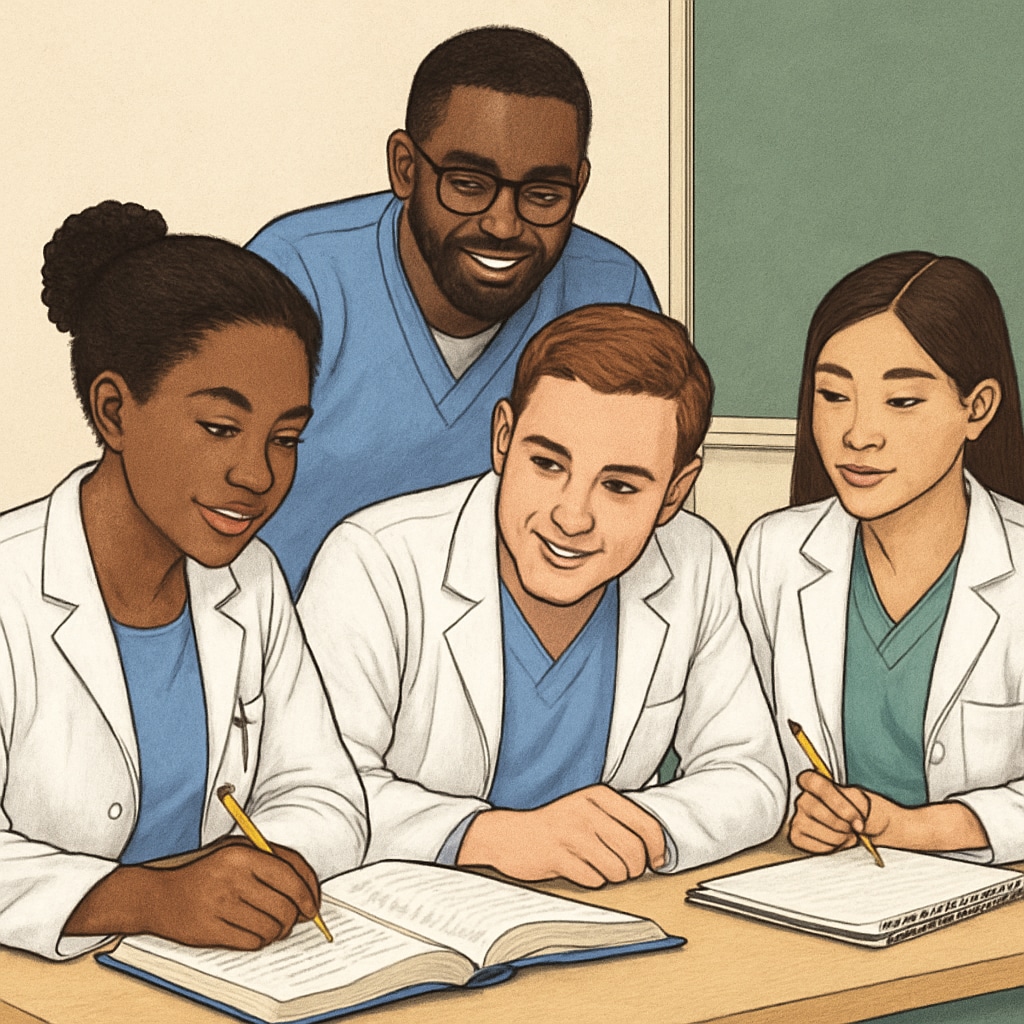Pursuing a career in medicine is often considered one of the most demanding academic and professional paths. For individuals with learning disabilities, this journey is even more challenging due to systemic educational barriers, societal stigmas, and personal struggles. The intersection of high-pressure academic environments, the need for exceptional memorization and problem-solving skills, and the lack of tailored support systems creates a unique set of obstacles. This article will delve into the challenges faced by such aspiring medical professionals, the limitations of contemporary education systems, and the strategies that can foster success.
Breaking Down Barriers: Challenges in Education Systems
Modern education systems are predominantly designed for neurotypical learners, operating on a one-size-fits-all model. For students with learning disabilities, such as dyslexia, ADHD, or processing disorders, this rigidity can hinder their ability to thrive. These students often excel in creativity and problem-solving but struggle with traditional methods of teaching and assessment, such as timed exams or rote memorization.
For example, medical education, with its dense textbooks, complex terminology, and rigorous testing standards, demands an extraordinary level of cognitive endurance. Students with learning disabilities may face challenges such as slower reading speeds, difficulty retaining information, or heightened anxiety during exams. These hurdles can make it seem nearly impossible to compete with peers on an equal footing.

To complicate matters further, societal stigmas around learning disabilities can lead to a lack of understanding or support from educators, peers, and even family members. As a result, students may internalize feelings of inadequacy, further compounding their struggles.
Resilience in the Face of Adversity: Stories of Aspiring Doctors
Despite these challenges, many individuals with learning disabilities have successfully forged careers in medicine. Their stories are a testament to resilience, determination, and the importance of supportive environments. Consider the story of Dr. Ben Carson, a renowned neurosurgeon who overcame significant academic struggles as a child to achieve global recognition in his field.
Such success stories highlight the importance of not only personal perseverance but also structural changes within educational institutions. For instance, accommodations such as extended test times, alternative assessment methods, and access to assistive technologies can level the playing field for students with learning disabilities.

Furthermore, mentorship programs led by professionals with similar experiences can provide invaluable guidance and inspiration. These mentors can help students navigate academic hurdles, manage stress, and build confidence in their abilities.
Strategies for Success: Bridging the Gap
Addressing the systemic limitations of education systems requires a multi-faceted approach:
- Individualized Learning Plans: Tailored educational plans that accommodate students’ unique needs can help them excel in their studies.
- Technological Support: Tools like text-to-speech software, note-taking apps, and organizational aids can significantly reduce the cognitive load on students with learning disabilities.
- Teacher Training: Educators need training to recognize and support students with learning disabilities effectively.
- Community Support: Building a strong support network of mentors, peers, and family members can provide emotional and academic encouragement.
Additionally, fostering an inclusive culture within educational institutions is crucial. This involves normalizing discussions about learning disabilities, celebrating diverse learning styles, and actively challenging stigmas.
Looking Ahead: A Call for Change
The journey of individuals with learning disabilities pursuing medical dreams is a powerful reminder of the potential within every student. However, it also underscores the urgent need for systemic reform within education. By embracing inclusivity and innovation, we can create a world where aspiring doctors, regardless of their learning challenges, can achieve their dreams.
As we move forward, let’s champion a more equitable education system—one that recognizes the diverse ways in which students learn and grow. In doing so, we not only empower individuals but also enrich the medical field with professionals who bring unique perspectives and strengths to the table.
For additional information on learning disabilities and their impact on education, visit Learning Disability on Wikipedia or explore strategies for support at Education on Britannica.
Readability guidance: This article maintains short paragraphs, uses clear transitions, and integrates actionable strategies to ensure accessibility for a wide audience.


